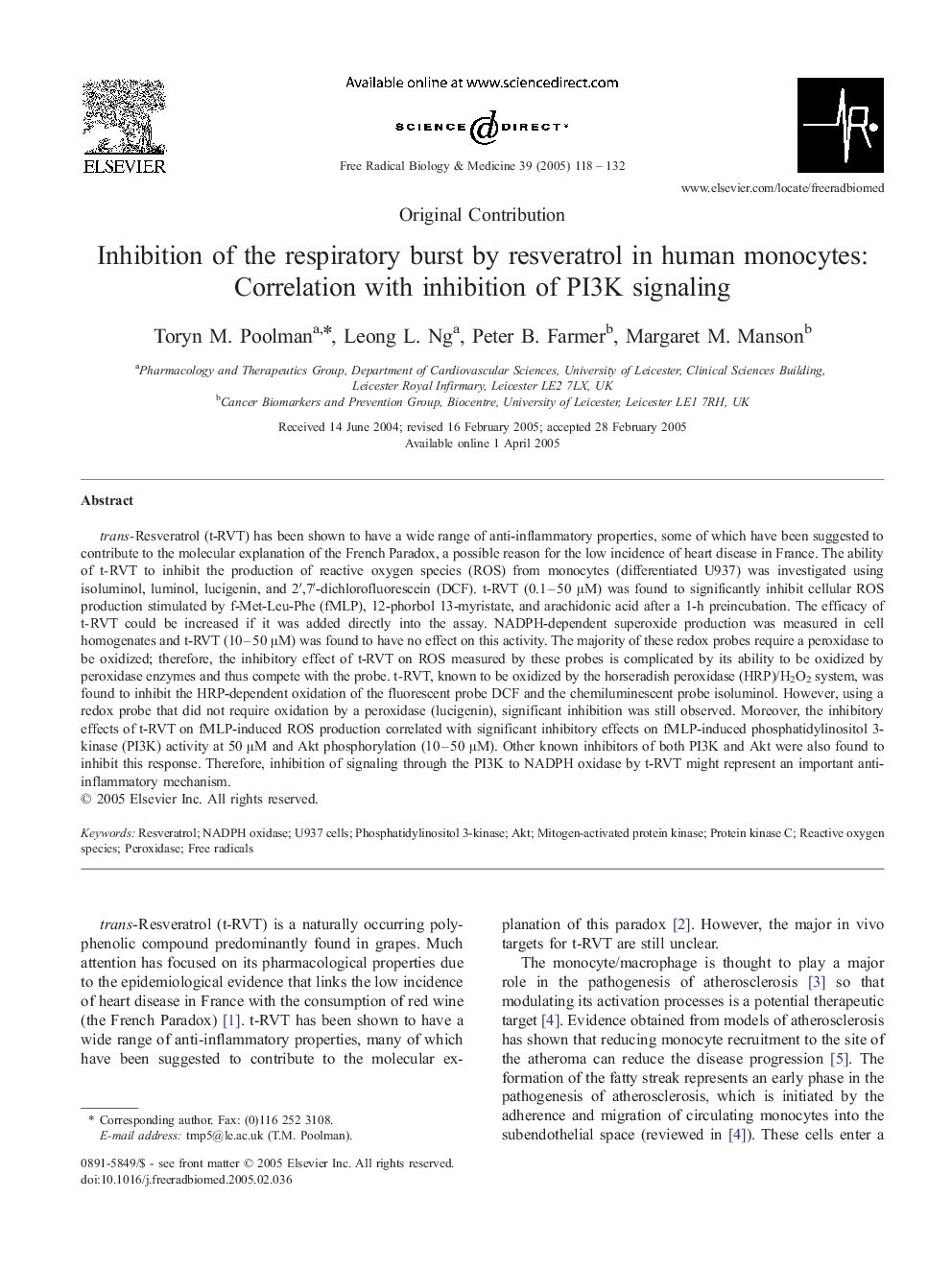| Article ID | Journal | Published Year | Pages | File Type |
|---|---|---|---|---|
| 10739243 | Free Radical Biology and Medicine | 2005 | 15 Pages |
Abstract
trans-Resveratrol (t-RVT) has been shown to have a wide range of anti-inflammatory properties, some of which have been suggested to contribute to the molecular explanation of the French Paradox, a possible reason for the low incidence of heart disease in France. The ability of t-RVT to inhibit the production of reactive oxygen species (ROS) from monocytes (differentiated U937) was investigated using isoluminol, luminol, lucigenin, and 2â²,7â²-dichlorofluorescein (DCF). t-RVT (0.1-50 μM) was found to significantly inhibit cellular ROS production stimulated by f-Met-Leu-Phe (fMLP), 12-phorbol 13-myristate, and arachidonic acid after a 1-h preincubation. The efficacy of t-RVT could be increased if it was added directly into the assay. NADPH-dependent superoxide production was measured in cell homogenates and t-RVT (10-50 μM) was found to have no effect on this activity. The majority of these redox probes require a peroxidase to be oxidized; therefore, the inhibitory effect of t-RVT on ROS measured by these probes is complicated by its ability to be oxidized by peroxidase enzymes and thus compete with the probe. t-RVT, known to be oxidized by the horseradish peroxidase (HRP)/H2O2 system, was found to inhibit the HRP-dependent oxidation of the fluorescent probe DCF and the chemiluminescent probe isoluminol. However, using a redox probe that did not require oxidation by a peroxidase (lucigenin), significant inhibition was still observed. Moreover, the inhibitory effects of t-RVT on fMLP-induced ROS production correlated with significant inhibitory effects on fMLP-induced phosphatidylinositol 3-kinase (PI3K) activity at 50 μM and Akt phosphorylation (10-50 μM). Other known inhibitors of both PI3K and Akt were also found to inhibit this response. Therefore, inhibition of signaling through the PI3K to NADPH oxidase by t-RVT might represent an important anti-inflammatory mechanism.
Keywords
Related Topics
Life Sciences
Biochemistry, Genetics and Molecular Biology
Ageing
Authors
Toryn M. Poolman, Leong L. Ng, Peter B. Farmer, Margaret M. Manson,
